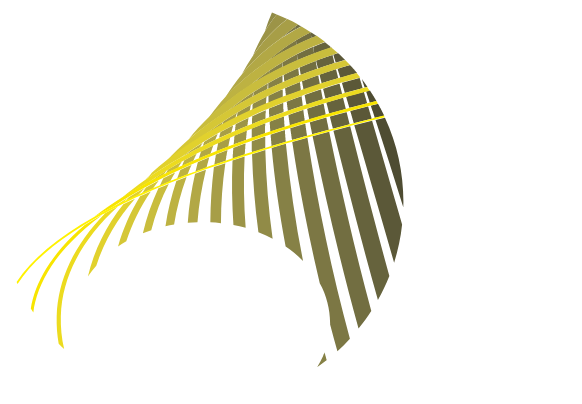Op 10-11 mei 2021 werd het PEACOC-project (Pre-commercial pilot for the efficient recovery of Precious Metals from European end-of-life resources with novel low-cost technologies) officieel gelanceerd tijdens een tweedaagse online vergadering. Het PEACOC-project ontving €11,2 miljoen van het Horizon 2020-onderzoeks- en innovatieprogramma van de EU om op pre-commerciële schaal een nieuw metallurgisch proces te demonstreren voor de terugwinning van edelmetalen uit een breed scala aan afgedankte producten.
Over het project
De verwachte technologieën van het project zullen economisch en ecologisch haalbaar zijn en uniek in Europa. In de komende 4 jaar zal het PEACOC-project werken aan het bereiken van 7 ambitieuze doelstellingen:
- Het opzetten van een nieuwe, volledige waardeketen van 19 partners om edelmetalen te produceren uit afgedankte producten die in Europa beschikbaar zijn maar nog niet worden teruggewonnen, geschat op:
- ~50 ton platina-groep metalen per jaar uit niet-gerecycleerde gebruikte autocatalysatoren,
- ~30 ton goud per jaar, ~10 ton palladium per jaar en
- ~100 ton zilver per jaar uit niet-gerecycleerde afgedankte printplaatassemblages,
- ~720 ton zilver verwacht in 2030 uit opkomende fotovoltaïsche afvalstromen in Europa.
- Het demonstreren van nieuwe technologie om de uitdaging aan te gaan van het effectief en efficiënt terugwinnen van edelmetalen met lage concentraties uit complexe afvalstromen, ontworpen met een bijna-nul-afvalbenadering en een echt circulaire economie.
- Het ontwikkelen van het eerste compacte, mobiele en modulaire raffinagesysteem op pre-commerciële schaal met een productiecapaciteit van maximaal 2 kg edelmetalen per week om het recyclen ervan in heel Europa uit te breiden. Hierdoor kunnen KMO’s profiteren van het recyclen van afgedankte producten en onbenutte bronnen.
- Het ontwerpen en produceren van nieuwe apparatuur op pre-commerciële schaal voor de raffinage van edelmetalen door Europese KMO’s.
- Het vergemakkelijken van investeringsbeslissingen in nieuwe productiefaciliteiten, aangezien potentiële investeerders de PEACOC-oplossing op pre-commerciële schaal kunnen leasen en testen zonder dat grote voorafgaande investeringen nodig zijn.
- Het ondersteunen van de Europese Commissie bij het behalen van de ambitieuze energie- en klimaatdoelstellingen die zijn vastgelegd in de Green Deal. Door het gebruik van teruggewonnen edelmetalen als katalysatoren voor het verminderen van uitstoot en voor schone energieopwekking te demonstreren, zal dit de milieu-impact en risico’s minimaliseren en het vertrouwen van de Europese gemeenschappen in de grondstoffensector vergroten.
- Het bevorderen van duurzaamheid door strategieën te ontwikkelen voor de valorisatie en upcycling van alle bijproducten die gepaard gaan met de terugwinning van edelmetalen.
Kritieke grondstoffensector
Edelmetalen zoals platina, palladium, rhodium, goud en zilver zijn onvervangbare industriële goederen. Ze worden op grote schaal gebruikt in verschillende sectoren vanwege hun unieke eigenschappen, zoals lage corrosiviteit, katalytische eigenschappen, lage elektrische resistiviteit, enzovoort. De Europese Commissie heeft sommige van deze metalen aangemerkt als kritieke grondstoffen vanwege hun grote belang voor de EU-economie.
In deze context is Europa ’s werelds grootste verbruiker van platina-groep metalen en wordt het steeds meer afhankelijk van import, die essentieel is voor zijn economie. Goud wordt over de hele wereld gedolven, ook in Europa (voornamelijk in Finland, Zweden, Bulgarije, Spanje en Griekenland), maar de Europese productie bedraagt minder dan 1% van de wereldwijde primaire productie. Terwijl de wereldwijde zilverproductie 28.000 ton bereikte, voornamelijk afkomstig uit Centraal- en Zuid-Amerika, China en Rusland, vertegenwoordigt Europa slechts 7% van de wereldwijde primaire productie (afkomstig uit Polen en Zweden).
Impact
De PEACOC-technologieën zullen naar verwachting het leveringsrisico van edelmetalen voor de Europese industrie drastisch verminderen. Dit zal nieuwe zakelijke kansen creëren voor KMO’s die werken met het recyclen van afgedankte producten en de positie van grote industrieën (recyclingbedrijven, raffinaderijen, automobielsector, metallurgie) versterken. De PEACOC-technologieën zullen naar verwachting de volgende impact hebben:
- De economische haalbaarheid en het marktpotentieel van het recyclen van edelmetalen aanzienlijk verbeteren. Dit zal worden bereikt via het proces op pilotschaal, wat zal leiden tot uitbreiding van de activiteiten in heel Europa.
- De prestaties op het gebied van gezondheid, veiligheid en milieu van het recyclen van edelmetalen verbeteren, met als doel een veilige en duurzame toegang tot en exploitatie van afgedankte producten van edelmetalen te bereiken.
- Edelmetalen produceren met een winstmarge tot 80% in vergelijking met de huidige marktprijzen voor edelmetalen.
- Een aanzienlijk volume van verschillende secundaire grondstoffen, die momenteel niet of onvoldoende worden benut, ontsluiten.
- Nieuwe werkgelegenheid creëren in de productie van grondstoffen en de fabricage van apparatuur.
Het projectconcept is gebaseerd op eerder ontwikkelde terugwinnings- en raffinagetechnologieën tot TRL5 in het kader van een ander door H2020 gefinancierd onderzoeks- en innovatieproject: PLATIRUS. Drie van de geselecteerde technologieën uit het PLATIRUS-project – door microgolf ondersteunde uitloging, gasdiffusie-elektrokristallisatie en diepe eutectische oplosmiddelen voor recycling en terugwinning van platina-groep metalen – zullen verder worden opgeschaald tot TRL7 in het PEACOC-project. Ze zullen worden gecombineerd met andere innovatieve concentratietechnologieën en technologieën voor de valorisatie van het afval dat zal worden geproduceerd, met als doel een bijna-nul-afvalproces.
Het PEACOC-project wordt uitgevoerd door een consortium van 19 partners uit 8 Europese landen en Turkije. Ze vertegenwoordigen een volledige industriële waardeketen van edelmetalen. Het project wordt gecoördineerd door Tecnalia Research and Innovation (Spanje) en zal vier jaar duren, te beginnen in mei 2021.
PNO Innovation
Binnen het PEACOC-project zal PNO Innovation de ontwikkeling en uitvoering van de verspreidings-, communicatie- en clusteringstrategie leiden. Daarnaast zal PNO ook een belangrijke rol spelen in het vormgeven van de betrokkenheid van stakeholders en de exploitatieaanpak van het project.
PNO zal haar internationale consultancy-ervaring inbrengen in het consortium. Dit omvat uitgebreide expertise in project- en innovatiemanagement, exploitatie en bedrijfsplanning. Er zal speciale aandacht worden besteed aan het identificeren en betrekken van relevante stakeholders voor verdere exploitatieactiviteiten, evenals markt- en bedrijfsanalyse om het consortium te ondersteunen bij het beschikbaar maken van de technologieën voor externe partijen.
Meer informatie:
Volg PEACOC op LinkedIn
Meer informatie over het project op de PEACOC Cordis-pagina.



